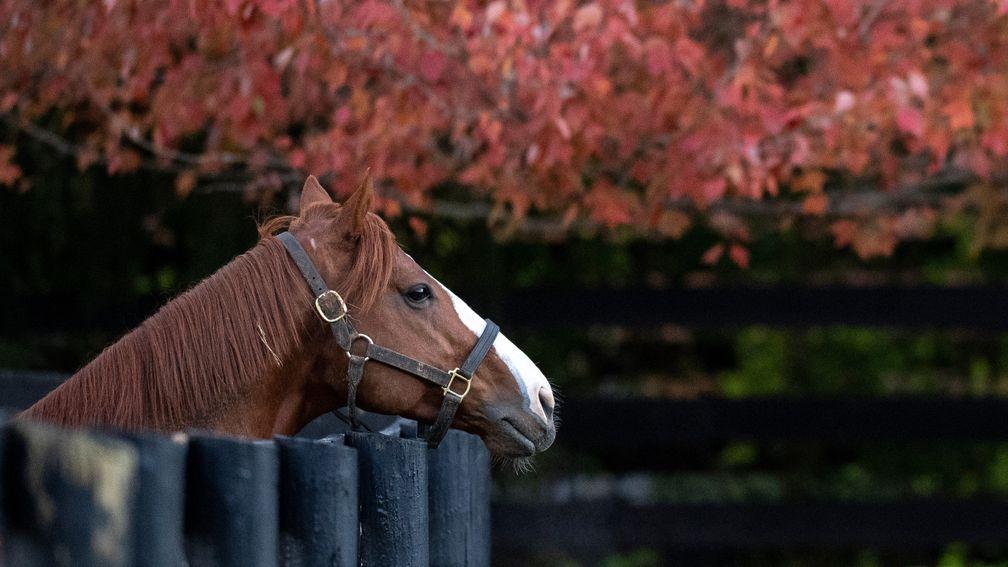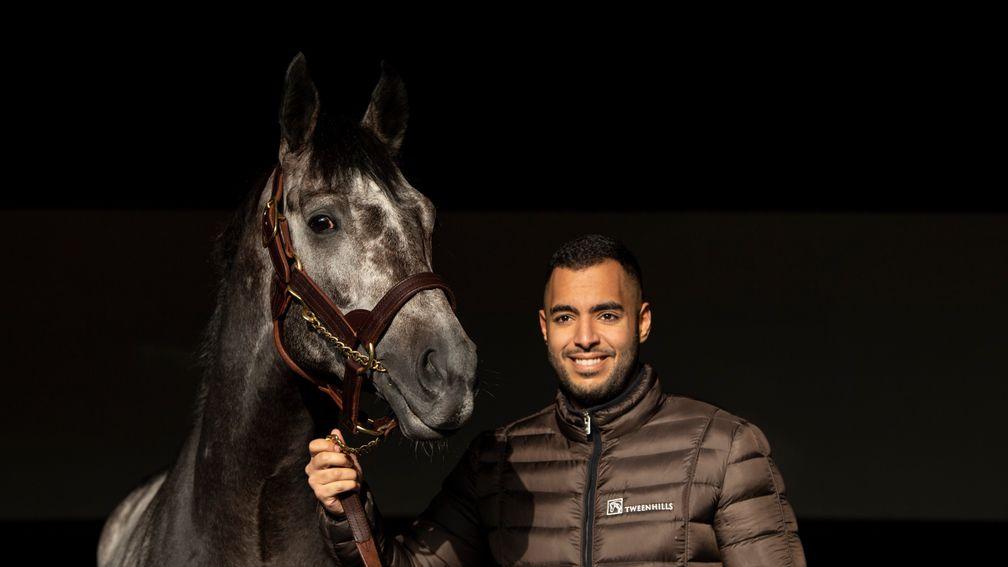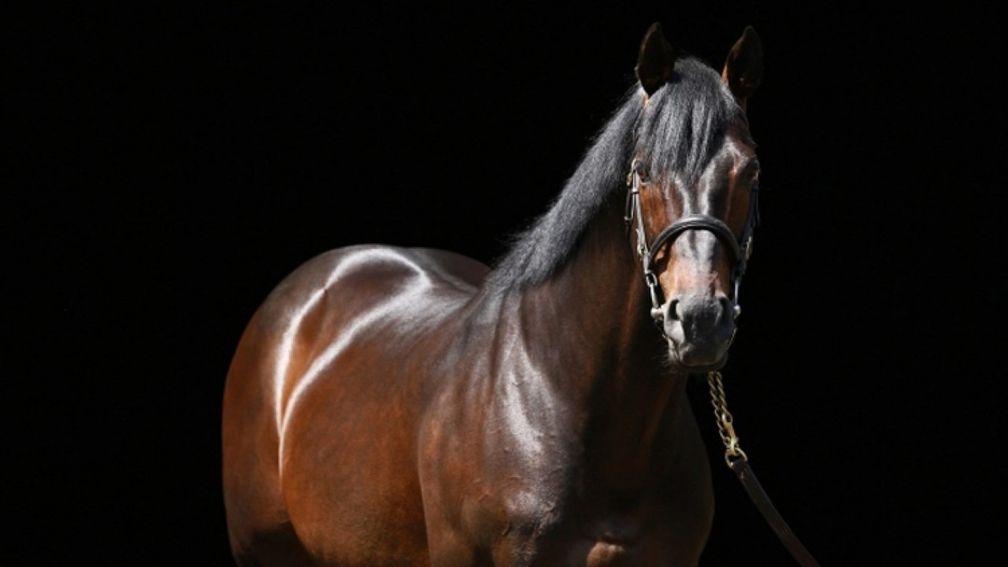Influence of Kentucky sires Kitten's Joy and Scat Daddy goes global
Michele MacDonald looks back at the past 12 months in US breeding

There is always a tinge of poignancy in saying goodbye, but North American farewells to 2018 are brightened by a number of feats during the year that will linger long in memory while also sparking anticipation of what will unfold in 2019.
Looking back over the past 12 months and forward to what might lie ahead reveals a shining series of meaningful landmarks and possibilities as well as some oncoming clouds of uncertainty.
For owners and breeders, one of the most distinguished accomplishments in the just completed season was the re-ascension of Kitten’s Joy to the peak of the general sire list just about a year after he moved to John Sikura’s Hill ‘n’ Dale Farms.
What makes his achievement particularly notable is that Kitten’s Joy’s progeny were so successful in international racing on turf, as well as in domestic contests on grass, that they propelled him to the top of the list on a continent where dirt racing is supreme.
Not only did Kitten’s Joy sire Europe’s horse of the year, Roaring Lion, but he also was the progenitor of Godolphin’s Hawkbill, victor in one of the world’s richest grass events, the $6 million Dubai Sheema Classic.
As a champion son of El Prado, Kitten’s Joy further extended the global dominion of his great grandsire, Northern Dancer, with his own best-ever season during which his progeny earned over $18.93m, putting him more than $1m ahead of second-ranked Candy Ride as of mid-December.
Of all stallions standing in Europe and North America, Kitten’s Joy’s progeny bankroll was superseded only by the $19.11m earned by the offspring of Godolphin’s Dubawi.

Also the North American general sire leader in 2013 when his offspring collected $11,326,203, Kitten’s Joy has routinely defied expectations based on his turf proclivities and sometimes less than sensational auction ring results.
He just keeps siring outstanding runners.
His record includes 91 black-type stakes winners to date, equal to seven per cent of his foals of racing age, including his 164 two-year-olds of 2018, most of which have not started yet. He has dominated North America as its leading turf sire each year since 2013.
When Sikura bought half of Kitten’s Joy from owners/breeders Ken and Sarah Ramsey – whose commitment to supplying mares to the stallion was the key to all the resulting success – he predicted that the stallion “is poised to become the next important North American-based international sire.” In the wake of Roaring Lion and Hawkbill, that prognostication now seems prescient.
While Kitten’s Joy will turn 18 at the dawn of the new year, his best days could still be ahead. The stallion covered 164 mares in 2018 and will have 186 juveniles in 2019; his fee for the 2019 season is $75,000, up from $60,000 in 2018.
Buyers of his sale yearlings in 2018 included Qatar Racing, which campaigned Roaring Lion, and Godolphin. Shadwell purchased the most expensive Kitten’s Joy yearling in North America, a $725,000 full-brother to stakes winner Kitten’s Cat sold at the Keeneland September sale.
At Tattersalls in October, Shawn Dugan, who has been a buyer for the Abu Dhabi-based Al Shira’aa Stud, paid 700,000gns ($962,366) for a Ramsey-bred Kitten’s Joy full-sister to Breeders’ Cup Turf Sprint winner Bobby’s Kitten.
Both the Keeneland and Tattersalls yearlings marked the most expensive ever sold by Kitten’s Joy at those respective global auction-leading venues, indicating increasing recognition of Kitten’s Joy’s abilities.
While Kitten’s Joy does not yet have a son who has made a mark at stud, Roaring Lion and Hawkbill are set to take up his mantle in Britain, where Bobby’s Kitten will stand his third season, in 2019.
In America, promising multiple Grade 1 winner Oscar Performance will stand his first season at Mill Ridge Farm, which decided the son of Kitten’s Joy was ample reason to re-enter the commercial stallion business. Another multiple Grade 1 winner, Big Blue Kitten, will stand his third season at Calumet Farm.
Still the Daddy
Meanwhile, as Kitten’s Joy reigns supreme, the late and much missed Scat Daddy still casts a long shadow over the sport. Scat Daddy’s progeny earned over $15.9m in 2018 to rank him third in North America as his last crop of two-year-olds began racing.
Undoubtedly the biggest accomplishment in American racing during 2018 was the Triple Crown conquest by Justify, Scat Daddy’s unbeaten and strikingly handsome son who became only the 13th horse in history to win the Kentucky Derby, Preakness and Belmont Stakes.
As the first Triple Crown winner to have been unraced as a juvenile, Justify smashed the fabled 'curse of Apollo', a reference to the last horse that had won the Kentucky Derby after not being raced at age two, an event that occurred way back in 1882. Additionally, as only the second undefeated Triple Crown winner, following Seattle Slew, Justify emphatically proved he is an extraordinary individual.

Just 112 days after his career began, however, Justify left the racing stage, and he was retired over the summer to Coolmore’s Ashford Stud, where he will stand for $150,000.
In hopes Justify can follow in the mold of Scat Daddy and sire both elite turf and dirt runners, Coolmore plans to support him with a strong group of mares including a herd of Galileo, Montjeu and Danehill daughters.
Moving boldly to secure top stallion prospects as well as a number of elite broodmares and yearlings annually, Coolmore have cornered the market on two of the most currently coveted commodities in the sport: the best sons of Scat Daddy and Triple Crown winners. Joining Justify at Ashford in 2019 will be another Grade 1 winner by Scat Daddy, the beautifully bred Mendelssohn, a half-brother to top sire Into Mischief and to multiple champion Beholder.
High hopes for Pharoah
The Irish-based conglomerate has also enthusiastically supported 2015 Triple Crown winner American Pharoah, a son of Pioneerof The Nile who stands at Ashford and has shuttled twice to Australia.
While Justify covers his first mares in 2019, American Pharoah will reach his own milestone as his initial crop comes to the races. Their appearance will mark the first time a Triple Crown winner will have first offspring competing in nearly four decades, following the debut of Affirmed’s progeny in 1983.
American Pharoah’s colts and fillies, many of which have been blessed with his rugged physique and willing disposition, have been in high demand, with 70 yearlings sold in 2018 for a total of $31,729,080 and an average price of $453,273.
Seven American Pharoah yearlings sold for $1m or more in 2018, with Coolmore purchasing three, including a $1m half-brother to its Irish-based Scat Daddy stallion Caravaggio. Godolphin acquired the most expensive American Pharoah yearling, paying $2.2m for a colt from the family of French champion Play It Safe.
In part propelled by the power of American Pharoah and generally boosted by a robust economy for most of 2018, North American bloodstock markets finally climbed back to the levels attained prior to the global economic crash of 2008.
With 2,916 yearlings sold, the world’s largest yearling marketplace, the Keeneland September sale, achieved a record average price of $129,335 in 2018. Gross at that sale reached $377.14m, just shy of the 2007 total turnover of $385.11 million for 3,801 yearlings sold.
However, as the number of foals produced keeps declining in North America, questions hover about the overall health of the industry. Increasingly turbulent economic conditions reflected by the American stock market’s tumble at the end of 2018 and equally tumultuous politics, both domestically and worldwide, also raise unpleasant questions.
Yet amid all this volatility, trainer Bob Baffert seems primed to continue an unparalleled record of brilliance. Hot off the epic Triple Crown victories of his trainees American Pharoah and Justify, he has 2019 classic favourite and likely 2018 juvenile champion Game Winner tucked inside his Santa Anita Park barn along with a cluster of other young gems including the unbeaten Grade 1 winner Improbable.
And more promising young horses keep coming Baffert’s way as his success keeps paying dividends.
Two of Justify’s ownership groups, Starlight Racing and SF Bloodstock, reinvested some proceeds from the colt’s sale to Coolmore for a reported $70m. Many of the 24 yearlings those groups bought in partnership for a combined $11.43m at the Keeneland September and Fasig-Tipton Saratoga select sales will go to Baffert to begin racing in 2019.
Pegasus World Cup evolves
In the first month of the new year, a revamped Pegasus World Cup event is set for Gulfstream Park even though claims can no longer be made that it is the world’s most lucrative. Created as the world’s richest race in 2017, the Pegasus featured a $12m purse for a 1m1f dirt contest, and that prize was upped to $16m in 2018, with connections paying $1m each to enter horses.
For 2019, the Pegasus has been divided into a $9m dirt race and a $7m turf contest, another indication of America’s increasing attention to grass competitions, which annually supply about 40 per cent of prize-money in North America.
Pegasus entry fees have reduced to $500,000 per race, and Coolmore have committed to compete in each division, with British Champions Fillies & Mares Stakes winner Magical appearing a strong early favourite in the turf race if entered as planned. Magical defeated all but the magnificent Enable in the Breeders’ Cup Turf.
While the Pegasus concept remains a work in progress, the event has already changed how some top horses begin their stud careers. Past Horse of the Year participants California Chrome and Gun Runner proceeded immediately to stallion duties after competing for the big dollars rather than having some time off for adjustment.
In 2019, likely 2018 older male champion Accelerate and fellow Breeders’ Cup winner City Of Light are each set to run in the Pegasus dirt race before being whisked off to Lane’s End Farm for the launch of their stud careers.
Due to the quick retirements of top competitors and its placement on the calendar, the Pegasus is not likely to have much impact on the racing landscape in the year ahead.
The spotlight will quickly shift to the rising three-year-olds, and the question of whether Game Winner or Improbable – or any one of his other youngsters – will carry Baffert to the Triple Crown mountaintops again will be paramount in the first half of the season.
How fate ultimately will unfurl cannot be predicted. Yet it seems certain that racing once again will reveal more glorious triumphs and some inevitable tragedies, and new heroes will surmount the larger realm of disappointments as the next chapter begins.
More articles looking back on 2018....
Maurice Burns, Tom Goff and Brendan Holland join our bloodstock jury
From the emotional to the awe-inspiring: five surprising stories of 2018
The heroes hiding among the past year's stallion statistics
Five of the most stunning horse trades on the sales circuit in 2018
Money, money, money: the four most expensive auction horses of 2018
The small breeders whose horses hit the headlines in 2018
Seven star mares whose progeny hit top gear during 2018
Honouring the best of breeding in 2018: the Racing Post Bloodstock Awards
Published on inNews
Last updated
- Royal Ascot winner Arizona on the move as Coolmore sire joins the exodus to Turkey
- Something different for Burrows as Group 1-winning trainer consigns at the Tattersalls Cheltenham December Sale
- Breeding right to Blue Point sells for €430,000 on Darley winning bid platform
- Classic hero Metropolitan set for strong home support with Etreham busy at the sales
- 'It has been nothing short of incredible' - Grace Hamilton on Godolphin Flying Start experience
- Royal Ascot winner Arizona on the move as Coolmore sire joins the exodus to Turkey
- Something different for Burrows as Group 1-winning trainer consigns at the Tattersalls Cheltenham December Sale
- Breeding right to Blue Point sells for €430,000 on Darley winning bid platform
- Classic hero Metropolitan set for strong home support with Etreham busy at the sales
- 'It has been nothing short of incredible' - Grace Hamilton on Godolphin Flying Start experience